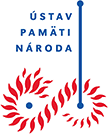Ján Bobák: Presidium of the Central Committee of the Communist Party of Slovakia during First Days of the Occu-pation of Czechoslovakia by Warsaw Pact
The author has been analysing the activities of the Central Committee of the Communist Party of Slovakia during first days of the occupation of Czechoslovakia by Warsaw Pact armies, from the invasion of occupation armies in the night from 20 to 21 August 1968 until the beginning of an extraordinary congress of the Communist Party of Slovakia (on 26 August). Planned coup d'etat was part of the military action which should justify the occupation. The coup was planned by a group of conspirators within the Presidium of the Central Committee of the Communist Party of Czechoslovakia led by Alois Jindra, Drahomír Kolder and Vasil Biľak, in cooperation with the leadership of the Central Committee of the Communist Party of the Soviet Union. The author examines reasons why the coup failed and its impact on the activities of the Central Committee of the Communist Party of Slovakia. In the Central Committee of the Communist Party of Slovakia there were bitter discussions on adopting an official opinion on the occupation of Czechoslovakia, on an extraordinary congress of the Communist Party of Czechoslovakia, as well as on the date when to summon the extraordinary congress of the Communist Party of Slovakia. During first days of the occupation central bodies of the Communist Party of Czechoslovakia were paralysed. Opinions of the Presidium of the Communist Party of Slovakia on the occupation were influenced mainly by the attitudes of the President Ludvík Svoboda. During negotiations in Moscow also by the requirements presented by Alexander Dubček, Gustáv Husák and Vasil Biľak. The main power playing a decisive role in creating the policy of the presidium was the membership of the Communist Party of Slovakia and the civil society which were clearly against the occupation. Main deficiencies of the activities of Slovak and Czech reform Communists were not only lack of communication, but in the first place the missing coordination of their activities.

Updated at: 29.04.2020
Print Tweet